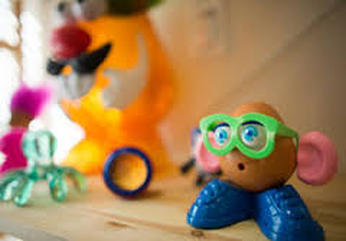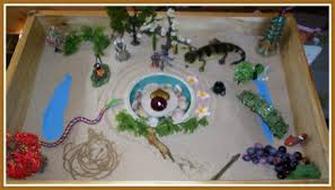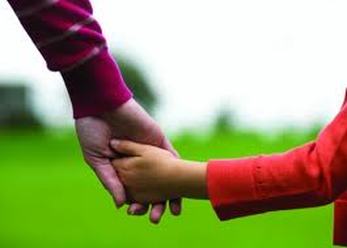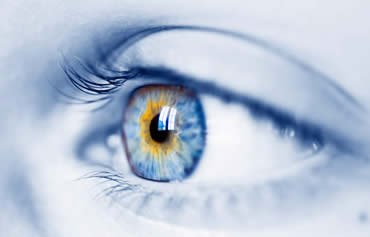
Traditional Psychotherapy
Suggested for individuals ages 9 and up
Psychotherapy is a general term for treating mental health problems by talking with a mental health professional. During psychotherapy, you learn about your condition and your moods, feelings, thoughts and behaviors. Psychotherapy helps you learn how to take control of your life and respond to challenging situations with healthy coping skills. There are many specific types of psychotherapy, each with its own approach. The type of psychotherapy that's right for you depends on your individual situation and we strive best to tailor an approach that best fits the needs of each and every client.
This type of therapy is proven to be beneficial for children, adolescents, and adults struggling with:
· Attachment Issues related to biological/foster/adoptive families
· Depression
· Anger problems
· Excessive worry/anxiousness
· Attention deficit/hyperactivity
· School related difficulties
· Peer problems
· Conduct disorder
· Traumatic stress from physical, sexual or emotional abuse
· Trauma from an accident, witnessing violence, or a natural disaster
· Self esteem or identity problems
Suggested for individuals ages 9 and up
Psychotherapy is a general term for treating mental health problems by talking with a mental health professional. During psychotherapy, you learn about your condition and your moods, feelings, thoughts and behaviors. Psychotherapy helps you learn how to take control of your life and respond to challenging situations with healthy coping skills. There are many specific types of psychotherapy, each with its own approach. The type of psychotherapy that's right for you depends on your individual situation and we strive best to tailor an approach that best fits the needs of each and every client.
This type of therapy is proven to be beneficial for children, adolescents, and adults struggling with:
· Attachment Issues related to biological/foster/adoptive families
· Depression
· Anger problems
· Excessive worry/anxiousness
· Attention deficit/hyperactivity
· School related difficulties
· Peer problems
· Conduct disorder
· Traumatic stress from physical, sexual or emotional abuse
· Trauma from an accident, witnessing violence, or a natural disaster
· Self esteem or identity problems

Experiential Play Therapy
Suggested for children 3-8 years old
Play is fundamental to children’s positive growth, development and wellness. The activity of Play expands children’s sense of self, increases their knowledge and strengthens their sense of self efficacy. Play relieves children’s feelings of stress, confusion and boredom. It supports their relationships with others, stimulates positive and creative thinking, encourages exploration, regulates emotions and boosts their confidence. Play is extremely important to children. Play Therapy uses play as a means to solving children problems and difficulties.
Experiential Play therapy is an interactive intervention between the therapist and child that supports children in communicating and processing traumatic and emotional experiences. Most children have difficulty understanding and expressing their thoughts. feelings, worries and fears due to their developmental and maturity level. The therapist guides the child in learning new adaptive behaviors, promotes and supports cognitive developments and provides insight to help the child resolve inner conflicts and dysfunctional thinking. In Play therapy the toys are the child's word and play is their language.
It is beneficial for children who struggle with:
· Traumatic stress caused by:
abuse or neglect, abandonment, or other events
· Nightmares/ night terrors
· Aggressive and defiant behaviors
· Excessive worry
· Moodiness
· Anxious or obsessive behaviors
· Separation anxiety
· Bed wetting or soiling
Suggested for children 3-8 years old
Play is fundamental to children’s positive growth, development and wellness. The activity of Play expands children’s sense of self, increases their knowledge and strengthens their sense of self efficacy. Play relieves children’s feelings of stress, confusion and boredom. It supports their relationships with others, stimulates positive and creative thinking, encourages exploration, regulates emotions and boosts their confidence. Play is extremely important to children. Play Therapy uses play as a means to solving children problems and difficulties.
Experiential Play therapy is an interactive intervention between the therapist and child that supports children in communicating and processing traumatic and emotional experiences. Most children have difficulty understanding and expressing their thoughts. feelings, worries and fears due to their developmental and maturity level. The therapist guides the child in learning new adaptive behaviors, promotes and supports cognitive developments and provides insight to help the child resolve inner conflicts and dysfunctional thinking. In Play therapy the toys are the child's word and play is their language.
It is beneficial for children who struggle with:
· Traumatic stress caused by:
abuse or neglect, abandonment, or other events
· Nightmares/ night terrors
· Aggressive and defiant behaviors
· Excessive worry
· Moodiness
· Anxious or obsessive behaviors
· Separation anxiety
· Bed wetting or soiling

Sand Tray Therapy
Recommended for children 9-years old to adulthood
Sand tray therapy is a therapeutic approach for older children, adolescents, and adults utilizing a specialized sand table to create a world of their own experiences. Sand therapy allows one to share stories regarding ones’ life experiences and struggles by creating resolution, healing and self exploration.
This type of therapy is proven to be beneficial for children, adolescents, and adults struggling with:
· Attachment Issues related to biological/foster/adoptive families
· Depression
· Anger problems
· Excessive worry/anxiousness
· Attention deficit/hyperactivity
· School related difficulties
· Peer problems
· Conduct disorder
· Traumatic stress from physical, sexual or emotional abuse
· Trauma from an accident, witnessing violence, or a natural disaster
· Self esteem or identity problems
· Hospitalization, chronic illness, death
Recommended for children 9-years old to adulthood
Sand tray therapy is a therapeutic approach for older children, adolescents, and adults utilizing a specialized sand table to create a world of their own experiences. Sand therapy allows one to share stories regarding ones’ life experiences and struggles by creating resolution, healing and self exploration.
This type of therapy is proven to be beneficial for children, adolescents, and adults struggling with:
· Attachment Issues related to biological/foster/adoptive families
· Depression
· Anger problems
· Excessive worry/anxiousness
· Attention deficit/hyperactivity
· School related difficulties
· Peer problems
· Conduct disorder
· Traumatic stress from physical, sexual or emotional abuse
· Trauma from an accident, witnessing violence, or a natural disaster
· Self esteem or identity problems
· Hospitalization, chronic illness, death

Parent-Child Interaction Therapy
Suggested for children 3-7 years of age and their parent(s) or guardian(s)
Parent and Child Interaction Therapy is a therapeutic approach where parents engage in positive interactive play activities with their child. During sessions parents are actively involved learning child-centered skills that are aimed at strengthening the parent child relationship, while reducing or eliminating difficult behaviors. Therapy sessions are held weekly in an therapeutic setting but can eventually move to the home. The therapist will continue to support the parent as needed once the therapy sessions are completed.
Parent-Child Interaction Therapy benefits children and parents who are struggle with:
· Attachment Issues
· Reactive attachment disorder
· Separation issues
· Re-uniting and stabilizing child and parent
· Relationship problems
· Wetting or soiling oneself
· Feelings of depression, avoidance and withdrawn
· Divorce, family dissolution
· Aggressive behaviors
· Excessive worrying
· Traumatic stress from physical, sexual or emotional abuse
Suggested for children 3-7 years of age and their parent(s) or guardian(s)
Parent and Child Interaction Therapy is a therapeutic approach where parents engage in positive interactive play activities with their child. During sessions parents are actively involved learning child-centered skills that are aimed at strengthening the parent child relationship, while reducing or eliminating difficult behaviors. Therapy sessions are held weekly in an therapeutic setting but can eventually move to the home. The therapist will continue to support the parent as needed once the therapy sessions are completed.
Parent-Child Interaction Therapy benefits children and parents who are struggle with:
· Attachment Issues
· Reactive attachment disorder
· Separation issues
· Re-uniting and stabilizing child and parent
· Relationship problems
· Wetting or soiling oneself
· Feelings of depression, avoidance and withdrawn
· Divorce, family dissolution
· Aggressive behaviors
· Excessive worrying
· Traumatic stress from physical, sexual or emotional abuse

Eye Movement Desensitization and Reprocessing (EMDR)
All ages
EMDR type of therapy that enables people to heal from the symptoms and emotional distress that are the result of disturbing life experiences. It is widely assumed that severe emotional pain requires a long time to heal. EMDR therapy shows that the mind can in fact heal from psychological trauma much as the body recovers from physical trauma. When you cut your hand, your body works to close the wound. If a foreign object or repeated injury irritates the wound, it festers and causes pain. Once the block is removed, healing resumes. EMDR therapy demonstrates that a similar sequence of events occurs with mental processes. The brain's information processing system naturally moves toward mental health. If the system is blocked or imbalanced by the impact of a disturbing event, the emotional wound festers and can cause intense suffering. Once the block is removed, healing resumes. Using the detailed protocols and procedures learned in EMDR training sessions, clinicians help clients activate their natural healing processes.
This type of therapy is proven to be beneficial for children, adolescents, and adults struggling with:
· Attachment Issues related to biological/foster/adoptive families
· Depression
· Anger problems
· Excessive worry/anxiousness
· Attention deficit/hyperactivity
· School related difficulties
· Peer problems
· Conduct disorder
· Traumatic stress from physical, sexual or emotional abuse
· Trauma from an accident, witnessing violence, or a natural disaster
· Self esteem or identity problems
All ages
EMDR type of therapy that enables people to heal from the symptoms and emotional distress that are the result of disturbing life experiences. It is widely assumed that severe emotional pain requires a long time to heal. EMDR therapy shows that the mind can in fact heal from psychological trauma much as the body recovers from physical trauma. When you cut your hand, your body works to close the wound. If a foreign object or repeated injury irritates the wound, it festers and causes pain. Once the block is removed, healing resumes. EMDR therapy demonstrates that a similar sequence of events occurs with mental processes. The brain's information processing system naturally moves toward mental health. If the system is blocked or imbalanced by the impact of a disturbing event, the emotional wound festers and can cause intense suffering. Once the block is removed, healing resumes. Using the detailed protocols and procedures learned in EMDR training sessions, clinicians help clients activate their natural healing processes.
This type of therapy is proven to be beneficial for children, adolescents, and adults struggling with:
· Attachment Issues related to biological/foster/adoptive families
· Depression
· Anger problems
· Excessive worry/anxiousness
· Attention deficit/hyperactivity
· School related difficulties
· Peer problems
· Conduct disorder
· Traumatic stress from physical, sexual or emotional abuse
· Trauma from an accident, witnessing violence, or a natural disaster
· Self esteem or identity problems
Trauma-Focused Cognitive Behavioral Therapy (TF-CBT)
TF-CBT is a conjoint child and parent psychotherapy approach for children and adolescents who are experiencing significant emotional and behavioral difficulties related to traumatic life events. It is a components-based treatment model that incorporates trauma-sensitive interventions with cognitive behavioral, family, and humanistic principles and techniques. Children and parents learn new skills to help process thoughts and feelings related to traumatic life events; manage and resolve distressing thoughts, feelings, and behaviors related traumatic life events; and enhance safety, growth, parenting skills, and family communication.
This type of therapy is proven to be beneficial for children and adolescents struggling with:
TF-CBT is a conjoint child and parent psychotherapy approach for children and adolescents who are experiencing significant emotional and behavioral difficulties related to traumatic life events. It is a components-based treatment model that incorporates trauma-sensitive interventions with cognitive behavioral, family, and humanistic principles and techniques. Children and parents learn new skills to help process thoughts and feelings related to traumatic life events; manage and resolve distressing thoughts, feelings, and behaviors related traumatic life events; and enhance safety, growth, parenting skills, and family communication.
This type of therapy is proven to be beneficial for children and adolescents struggling with:
- Emotional and behavioral problems resulting for single, multiple of complex traumas
- Traumatic grief
Telehealth
Telemental health allows mental health providers to offer services remotely to clients who lack access the mental health resources in their community, or experience barriers to visit a mental health office in-person. Through the use of a HIPAA-compliant telehealth platform, online video-conferencing guarantees your confidentiality from the comfort of your own home. If you are interested in telemental health, we encourage you to contact your insurance company to determine your eligibility for services.
Telemental health allows mental health providers to offer services remotely to clients who lack access the mental health resources in their community, or experience barriers to visit a mental health office in-person. Through the use of a HIPAA-compliant telehealth platform, online video-conferencing guarantees your confidentiality from the comfort of your own home. If you are interested in telemental health, we encourage you to contact your insurance company to determine your eligibility for services.